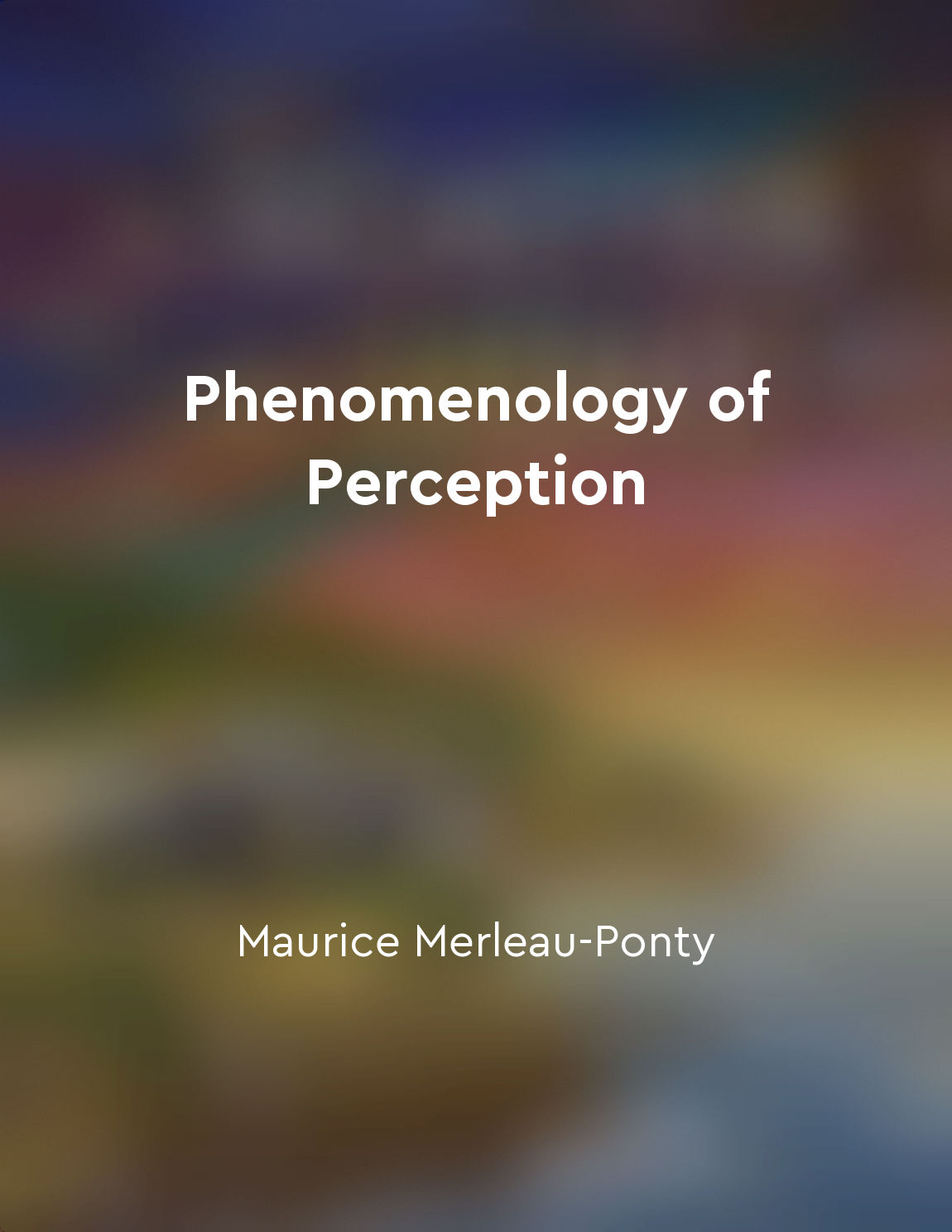Limited vision does not necessarily mean limited perception from "summary" of The Mind's Eye by Oliver Sacks
Oliver Sacks explores the fascinating relationship between vision and perception in "The Mind's Eye." He delves into the idea that limited vision does not equate to limited perception. This concept challenges the conventional belief that impaired vision necessarily diminishes one's ability to perceive the world fully. Sacks presents cases of individuals who have experienced vision loss but have developed heightened perceptual abilities in other sensory modalities. For example, he describes a woman named Lilian who lost her vision but became more attuned to sound, enabling her to create vivid mental images of her surroundings through echolocation. This demonstrates how the brain can adapt to compensate for deficits in one sensory system by enhancing others. Moreover, Sacks discusses how individuals with visual impairments can develop a rich inner world through the power of imagination. He introduces us to a man named Zoltan who lost his sight but continued to paint using his memories and emotions as inspiration. This highlights the notion that perception goes beyond the physical act of seeing and encompasses a deeper understanding of the world through emotional and cognitive processes. By sharing these stories, Sacks challenges our preconceptions about the limitations of vision loss and encourages us to consider the complex interplay between sensory input and mental perception. He invites us to expand our definition of perception beyond the confines of visual stimuli, recognizing the intricate ways in which the brain processes information from the environment.- Sacks invites us to rethink our understanding of perception and appreciate the resilience and adaptability of the human mind in the face of sensory challenges. Through his exploration of the mind's eye, he reveals the profound ways in which individuals can perceive the world in ways that transcend the limitations of physical vision.
Similar Posts
Brain generates mental images
The brain is a remarkable organ that is responsible for generating mental images. When we see, hear, smell, taste, or touch som...
The mind is fallible
The mind is fallible. This is a truth that we must acknowledge and accept. Our minds are not infallible, perfect instruments of...
Using eye contact to enhance charisma
Eye contact is a powerful tool that can significantly enhance your charisma. When you maintain strong eye contact with someone,...
Understanding emotions leads to selfmastery
Understanding emotions is essential for achieving self-mastery. Emotions are powerful forces that can influence our thoughts an...
Ethics should guide our actions
In the pursuit of knowledge and progress, it is essential to remember that our actions should be guided by ethics. Ethics serve...

Perception is grounded in the body's capacities
Our perception of the world is intimately tied to the capacities of our bodies. Through our senses and movements, we actively e...

Changing habits can rewire the brain
Our brains have a remarkable ability to adapt and change, a concept known as neuroplasticity. This means that our habits and be...

The clinical tales are both informative and thoughtprovoking
The clinical tales within this book serve a dual purpose: they are not only informative but also thought-provoking. Each tale p...

